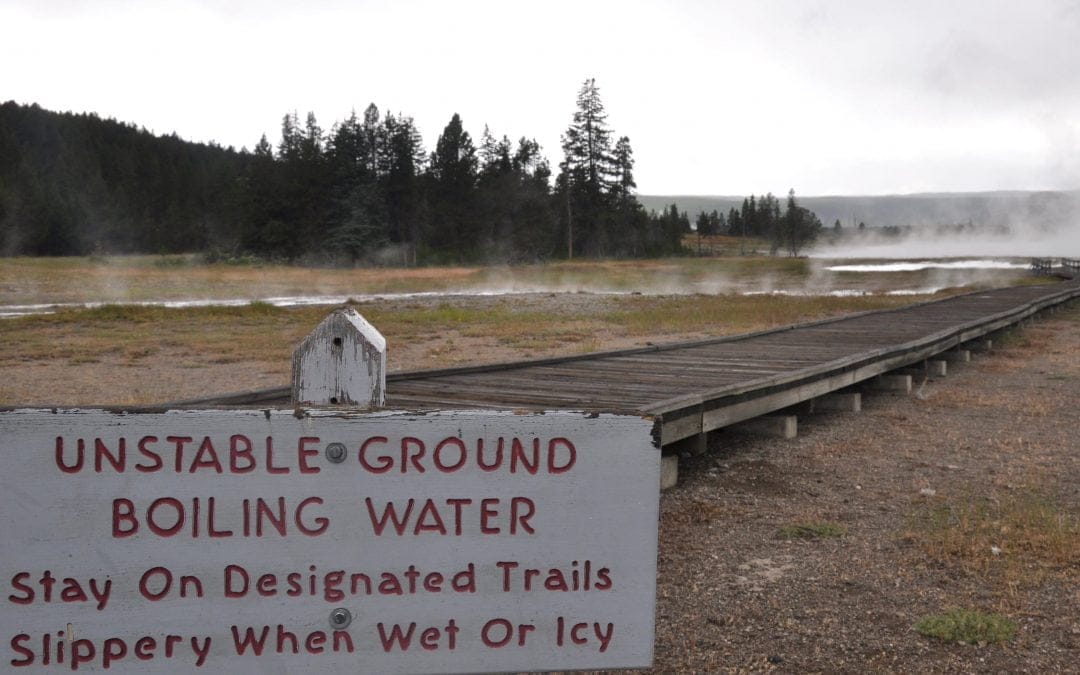Last week the Cooperative Baptist Fellowship (CBF) staked out some new ground after years of growing resistance to its no-gays hiring policy — approved in 2000 in response to growing threats of funding withdrawal from churches desiring formal action to counter conservative criticism that the young fellowship was “pro-gay.”
It was an uncomfortable position for CBF then, and has become less comfortable over the years.
For a variety of reasons, denominations (or networks of churches that act like denominations) are on shaky ground. Attempting to respond fairly and compassionately to competing voices is an added challenge and no easy task.
In other words, finding solid ground apart from a fundamentalist approach to enshrining hardened truth and then kicking everyone who disagrees to the curb is not easy.
Fellowship founders wisely avoided setting up a situation (such as adopting annual “resolutions” and narrowly revised doctrinal statements as done by Southern Baptists) out of respect for varied perspectives within the movement. Such an approach honors historic Baptist commitments to individual and congregational freedom.
However, some more-conservative voices within CBF (obviously hearing misrepresentations of CBF as affirming anything it didn’t formally oppose) pushed later leadership to act in some formal way on this particular and particularly divisive issue.
The funding and hiring policy was such a response in 2000, and it’s been challenged and defended — and ignored as much as possible — ever since. But the growing affirmation of LGBTQ persons along with the nationwide legality of same-sex marriages pushed the Fellowship to a point of response again.
The Illumination Project, set forth by CBF leaders a couple of years ago, was designed to create a model for addressing challenging issues in constructive ways. While a larger mission, everyone in CBF life knew the hiring policy was the prime target and the one of most interest and impact.
The long process of listening and deliberation led to a decision last week by the Fellowship’s governing body to drop the discriminatory hiring policy but to adopt an implementation plan that still closes some leadership and ministry roles based on sexual orientation.
The ground is shaking in response to this decision that only partially opens the door for LGBTQ participation in the Fellowship — but opens CBF leaders to crossfire.
Longtime critics of CBF portray the move as an unwillingness to take a biblical stand, while opposition and even outrage is expressed by those hoping and praying that the Fellowship would drop discrimination against LGBTQ Christians completely.
Before weighing in further, some acknowledgements are in order:
First, I speak from some distance, having not been involved in the deliberations or decision-making process. (That’s not a complaint!)
Second, I am not a pastor or other church leader tasked with interpreting these policies and navigating a divisive issue amid strong and varying opinions in a congregational setting.
Third, Fellowship staff and elected leadership — many whom I know well and hold in high regard — are in a bind; there is no decision on this issue that doesn’t do damage to real people. Funding is not just money; it directly provides jobs and fuels ministries and missions of importance.
Suffice it to say: It is easier to be a prophet when one’s own profits aren’t on the line.
Fourth, I am not one excluded by the policies, past or current, and cannot fully grasp the emotional impact no matter how hard I try. My LGBTQ friends are the ones excluded and, therefore, their voices need to be heard primarily, sympathetically and supportively. I deeply regret any action that adds to the pain of exclusion these persons have long felt from both inside and outside the church.
In reading with interest the variety of reactions to the CBF decision of last week, I hear friends who consider this a hard step in the right direction as well as those who consider it to be a missed moment and therefore the last straw leading to departure.
Personally, my patience has worn thin with such discrimination. Yet, I confess it is easier to hold the position, “Do what’s right and let the cards fall where they will,” when the cards are not falling on me. But I still want to believe that such a stand for justice is worth the cost.
At best, the position now taken by CBF is shaky ground, and it puts leadership in a defensive posture. And it ensures that yet another round of reaction-driven deliberation and decision is yet to come.
The most thoughtful critics acknowledge that while affirmation of LGBTQ persons has increased dramatically in recent years, few non-fundamentalist Baptist churches are fully on board. In many settings, the issue is as divisive at the congregational level as it is within non-fundamentalist associations of churches.
While honoring those who choose to stay or to leave or to reduce participation, here is where I’m landing at this time:
One: In words and deeds, I will more intently support LGBTQ Christians and others who face discrimination, and I will advocate strongly for their full inclusion in American society and every church circle in which I belong.
Two: I will pray for and encourage those leaders standing uncomfortably on the unstable ground of limited discrimination — realizing their decisions are less about choosing discrimination than doing institutional damage control with the great hope of moving beyond the current no-win situation.
Three: I will make fuller use of the communications tools at hand to educate those open to the possibility that new light can be shed on the subject of biblical faithfulness and the inclusion of all God’s children — including those with same-sex attraction.
To that end, Nurturing Faith will provide excellent resources such as the superb, pocket-sized book, This I Know: A Simple, Biblical Defense for LGBTQ Christians by Jim Dant, a pastor familiar with the risks and rewards of an openness to the larger family of faith.
This book is available now at Nurturing Faith’s online bookstore — and will be made available en mass when the Cooperative Baptist Fellowship gathers for its annual general assembly next June in Dallas.
Director of the Jesus Worldview Initiative at Belmont University in Nashville, Tennessee and former executive editor and publisher at Good Faith Media.



